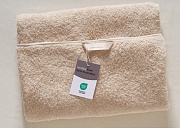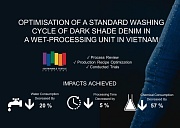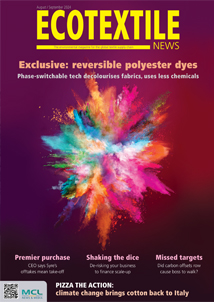The future of fibers is based on collaboration within the industry. Why?
Pull back to look at the big picture of what the textile industry aims to achieve for success, growth and sustainability long-term. The list includes complex goals to address global impacts for climate change with circularity and material creation all while delivering on increasing expectations for performance and value. With many years of experience developing successful collaborations, the team at Sorona® understands that collaboration is what drives the most impactful innovations and results that revolutionize textile design.
This spirit of collaboration has created industry firsts and continues to inspire throughout the value chain. “Our collaborations with other fiber companies allow more apparel brands the opportunity to weave sustainable comfort into their products and achieve the ultimate blend of eco-efficiency and performance. We’re proactively addressing tomorrow’s challenges with partners that value renewably sourced fiber materials without compromising quality,” says DuPont Biomaterials Global Marketing Director Renee Henze.
Collaboration at Scale
Driving innovation at scale is the only clear path to growth and change. That means creating dynamic solutions that have a variety of uses. Sorona® partnered with TENCEL™ Lyocell and TENCEL™ Modal fibers from Lenzing resulting in a new certified mill-collection that expands the future of sustainable textiles for designers to use in various applications including active wear, ready-to-wear, intimates and denim. This new offering gives extremely soft garments greater resilience in stretch, recovery and dimensional stability and encompasses an entire range of constructions, colors and weights.
To meet demand for sustainable fashion options in everyday casual wear, Sorona® also recently launched a blended fabric collection with Eastman Naia cellulosic fiber to create garments with exceptional stretch and recovery, luxurious drape and a smooth, soft handfeel. The new collection expands the future of sustainable textiles for designers with fabrics that are luxurious and easy-to-care-for with quick-drying properties and reduced pilling.
Industry Firsts
The faux fur market is projected to grow 19 percent worldwide from 2019 to 2023 due to increasing consumer demand for more transparent and ethical fashion. To answer the call, Sorona® and ECOPEL created KOBA faux fur by ECOPEL. With 70 to 100 percent Sorona®, it’s the first commercially available faux fur made with biobased ingredients and features an array of performance attributes including warmth, durability and dyeability, enabling more design possibilities including unique colors not typically seen in nature, as well as the recreation of colors and patterns common in real fur.
International brands and designers such as Stella McCartney have already adopted the use of Sorona® and KOBA faux fur in their collections.
Innovation for the Future
Thinking beyond apparel, Sorona® is also creating ideas that touch the home. Together with Unifi, Inc. and Youngone, Sorona® unveiled a new collection of insulation products that offers soft, dimensionally stable and sustainable options for cold-weather garments and bedding materials. Leveraging Sorona® renewably sourced fibers and Unifi REPREVE® recycled content, three unique insulation products were created including the ECOLoft™ ecoelite™ insulation collection – first post-consumer recycled product that also incorporates bio-based materials for innovative, breakthrough insulation.
“It’s our hope that more brands will see the value in collaboration and the potential it has to create real solutions to shape the future of our industry,” says Henze.
For more information contact Alexa Raab at This email address is being protected from spambots. You need JavaScript enabled to view it.

























































































